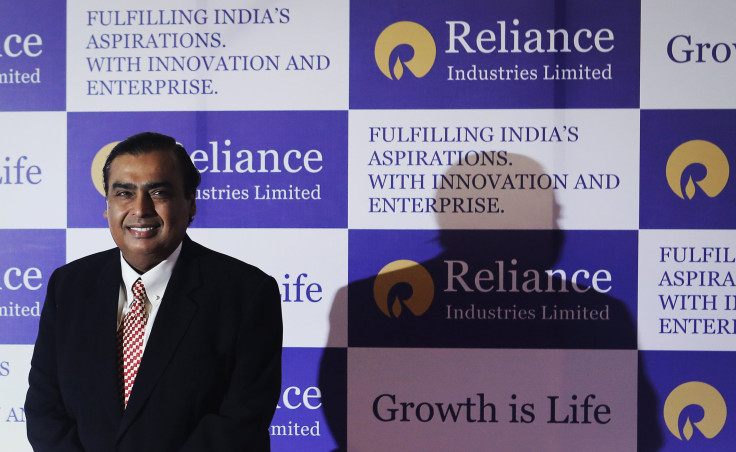Amazon Goes Full Throttle To Take On Asia’s Richest Man

India's retail market is a three-horse race between Amazon (NASDAQ:AMZN), Walmart, and domestic conglomerate Reliance Industries' retail unit. Led by Mukesh Ambani, Asia's richest man, Reliance currently enjoys the edge in the region's massive retail space, thanks to a wide footprint of physical stores across several categories that include groceries, fashion, footwear, and electronics, among others.
What's more, it's no secret that Reliance is busy charting out a hybrid online-offline business model in India, and that could pose a big challenge to Amazon's aspirations there. Not surprisingly, the latter is busy trying to close the gap with Reliance, and it has taken a host of steps to ensure that it can fight on an equal footing with the homegrown rival.
Amazon makes a serious statement
Amazon recently unveiled its latest office campus in the Indian city of Hyderabad to accommodate close to 15,000 employees. The e-commerce giant says that this is the first building that it owns outside of the U.S., while also being its "single largest building globally." In essence, the Hyderabad office is approaching the scale of an HQ2 given its sheer size.
The e-commerce giant says that the new campus "strengthens focus on talent in India" and fosters inclusion among employees. While this may sound like corporate-speak, don't be surprised to see the new offices become the consolidation center for the multiple acquisitions Amazon is looking to make in the country.
The company is reportedly acquiring a 49% stake in Future Coupons, which in turn owns a 7.3% stake in Future Retail, a predominantly brick-and-mortar retailer that claims to have a presence in 400 Indian cities through a network of over 2,000 stores and 16 million square feet of retail space. Future Retail has as many as nine supermarket brands under its umbrella, so a stake in this retailer will give Amazon some of the firepower it needs to counter Reliance's own expansion.
What's more, to shore up its delivery infrastructure, Amazon is looking to spend $300 million to acquire Uber Eats' Indian business. While such a move would add a food delivery platform to Amazon, the e-commerce giant can also expand the Uber Eats offering to include more products and expedite same-day delivery across the country.
Uber's food delivery platform is present in 37 cities across India and delivers nine million orders a month, so a combination of physical stores and an established delivery platform would allow Amazon to create a compelling online-offline model.
Consider this potential: When Indian customers order groceries through the Amazon app, the order would be fulfilled by the nearest Future Retail outlet. Then an Uber Eats employee could pick that order up and quickly deliver it to the customer. Such a model would fit perfectly within Amazon's Prime Now subscription service, allowing the company to expand its two-hour deliveries to more than just a select few areas.
A smart strategy to take on Ambani and Reliance
Amazon needs to go all-out to get more business in India, as Reliance Retail, with a pan-Indian presence of more than 10,000 stores, is already testing the online-to-offline model.
According to the latest reports, customers can place orders using Reliance's online platform, Ajio.com, at the retailer's smaller physical locations. Once an order is placed, consumers collect or return their orders through those small kiosks. In this way, Reliance is planning to increase awareness around its online shopping platform, which currently lists over 150,000 products from more than 800 brands.
The smaller kiosks, which are present in rural areas as well as big cities, will give the domestic giant a nice leg up in last-mile connectivity. What's more, Reliance could eventually start bringing orders straight into consumers' homes through its smaller stores. In fact, Reliance Retail's pilot project to connect online and offline retail is already under way.
Amazon needs to succeed in India to ensure that it remains a top growth stock in the future given the potential of this market. It should come as no surprise to investors to see the company is quickly scaling up its physical presence and delivery infrastructure by picking up stakes in existing domestic players rather than building them from scratch.
John Mackey, CEO of Whole Foods Market, an Amazon subsidiary, is a member of The Motley Fool’s board of directors. Harsh Chauhan has no position in any of the stocks mentioned. The Motley Fool owns shares of and recommends Amazon. The Motley Fool recommends Uber Technologies. The Motley Fool has a disclosure policy.
This article originally appeared in The Motley Fool.




















